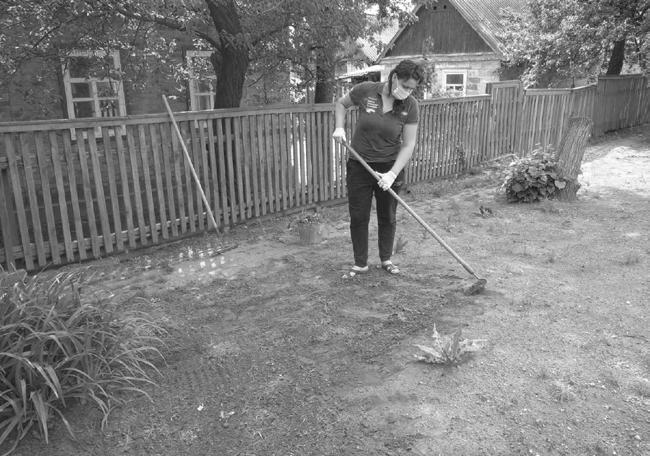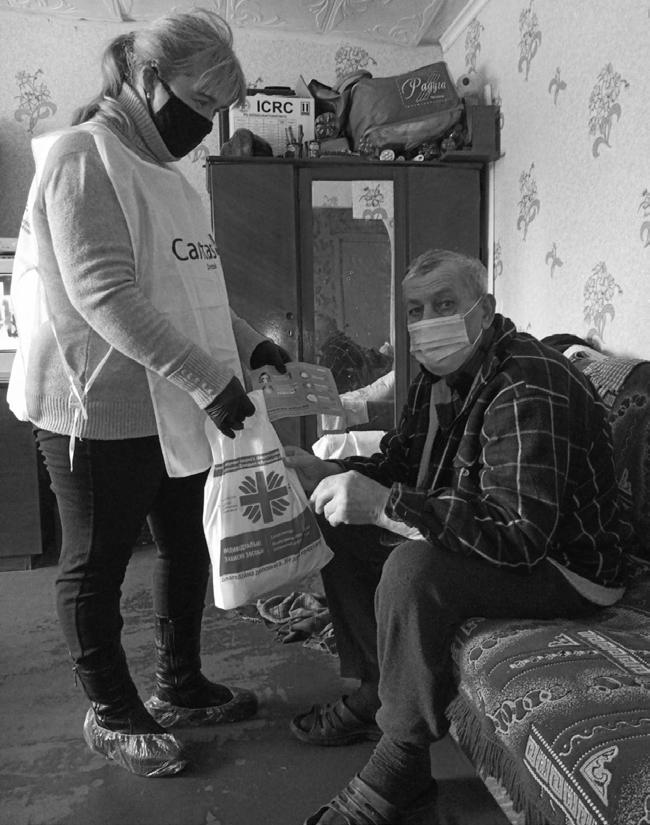elderly, who have no relatives, or whose relatives are on the other side — in Donetsk, in Yasynuvata (social worker, female, site 1)
“Shyness” of men in approaching humanitarian NGOs or in taking an active civic role, was perhaps the most recurrent theme in interviews and focus groups in this study. This “shyness” can be explained by gender stereotypes of men’s self-sufficiency that make it difficult for men to ask for help. As for active participation in civic life, men might feel “shy” lacking soft skills and social capital. Women are socialized to value social networks and empathize with others, so are more likely to engage in volunteering, community projects, etc. Women also see themselves as responsible for the household, so are more active in searching for humanitarian aid and other possible assistance. According to PAX report, women tend to reproduce such stereotypes themselves, by commenting that men are “psychologically weaker” while women are “stronger” and more “enduring” when dealing with paperwork and a need for queuing and visiting numerous institutions. Women have “authoritative” knowledge of survival practices (presented as traditionally “feminine” world of knowledge and authority). This research concludes that “A man can be present in a situation of receiving and fighting for state assistance, the he finds humiliating, only in the role of “accompaniment” and “protection” of women – to intervene when he must “protect the woman” from bureaucratic abuse”9. The all-Ukrainian survey of IDPs also revealed a higher percentage of female IDPs approaching all social and governmental structures, compared to their male counterparts. However, men are usually more successful in their communication with service providers and have fewer complaints on the quality of service. For instance, 56.6% of men as opposed to 48.5% of women in this survey successfully defended their rights in court. Women in this survey complained more about unclear guidelines for approaching governmental structures, compared to men: 15.4% of women vs 13.1% of men on the need to submit additional documents, 10.1% vs 6.6% on lack of information on the procedures and frequently asked questions, 6.2% vs 3.9% on delays in resolving their cases, 6.5% vs 4.3% on poor condition of waiting rooms and toilets, and 6.5% vs 4.9% on disrespectful treatment10. It is difficult to say whether men indeed are more efficient when it comes to approaching governmental structures, or if women perceive the same situations in more dramatic tones, being socialized to express their emotions more easily than men. In any case, Caritas could offer consultations and accompaniment to its beneficiaries to make their approaching government structures more efficient. Creation of “mobile offices” would be welcome.
We need a space for mothers, who are sitting at home with children. Some kind of activities for mothers, so that they could come. Because I have friends - one mother with two children, another one with one child. They sit at home with these children all day long! There is no space to socialize, nowhere to go out. We don’t have such a place to hang out, just a normal place where we could sit… Where we could just drink some tea, just to go outside of your home.
Healthcare infrastructure as “top priority” for women Rural and small town communities in Ukraine often lack basic social infrastructure, related in particular to healthcare needs of its population. This poses difficulties for reduced-mobility vulnerable groups in accessing healthcare services that they need in the vicinity of their homes. According to FAO report, unment needs for rural elderly are 47% for outpatient care, 81% for rehabilitative care through polyclinics, 71% for in-patient homecare, and 32% for emergendcy medical care. While men’s reasons for not visiting clinics were related to gender stereotypes, for women main reasons were infrastructural – closure of rural clinics 9 https://paxforpeace.nl/what-we-do/publications/changing-gender-dynamics-througharmed-conflict-in-ukraine (p.25) 10 http://gutszn.kr-admin.gov.ua/rivnist/gendernuy%20analiz.pdf
29








